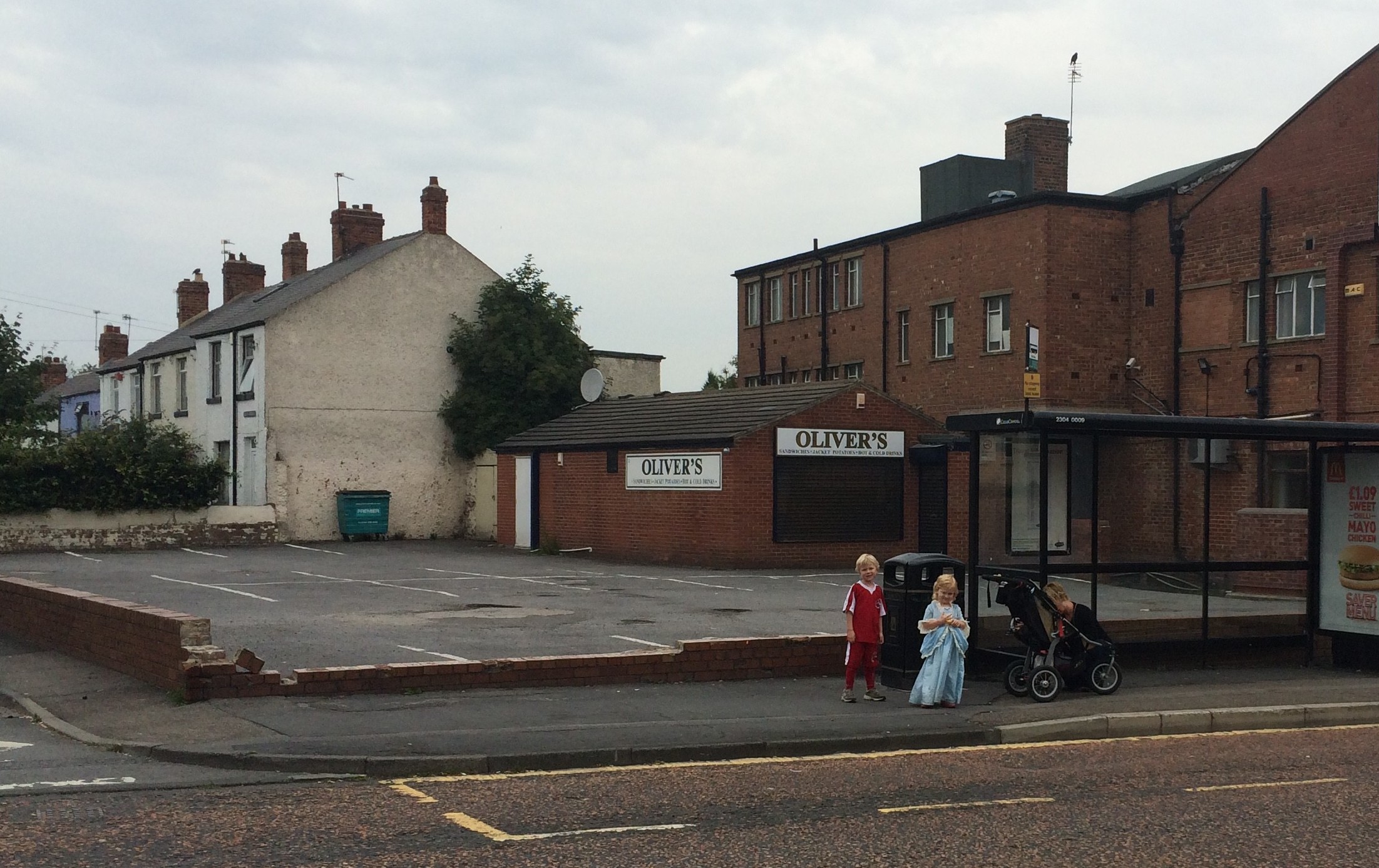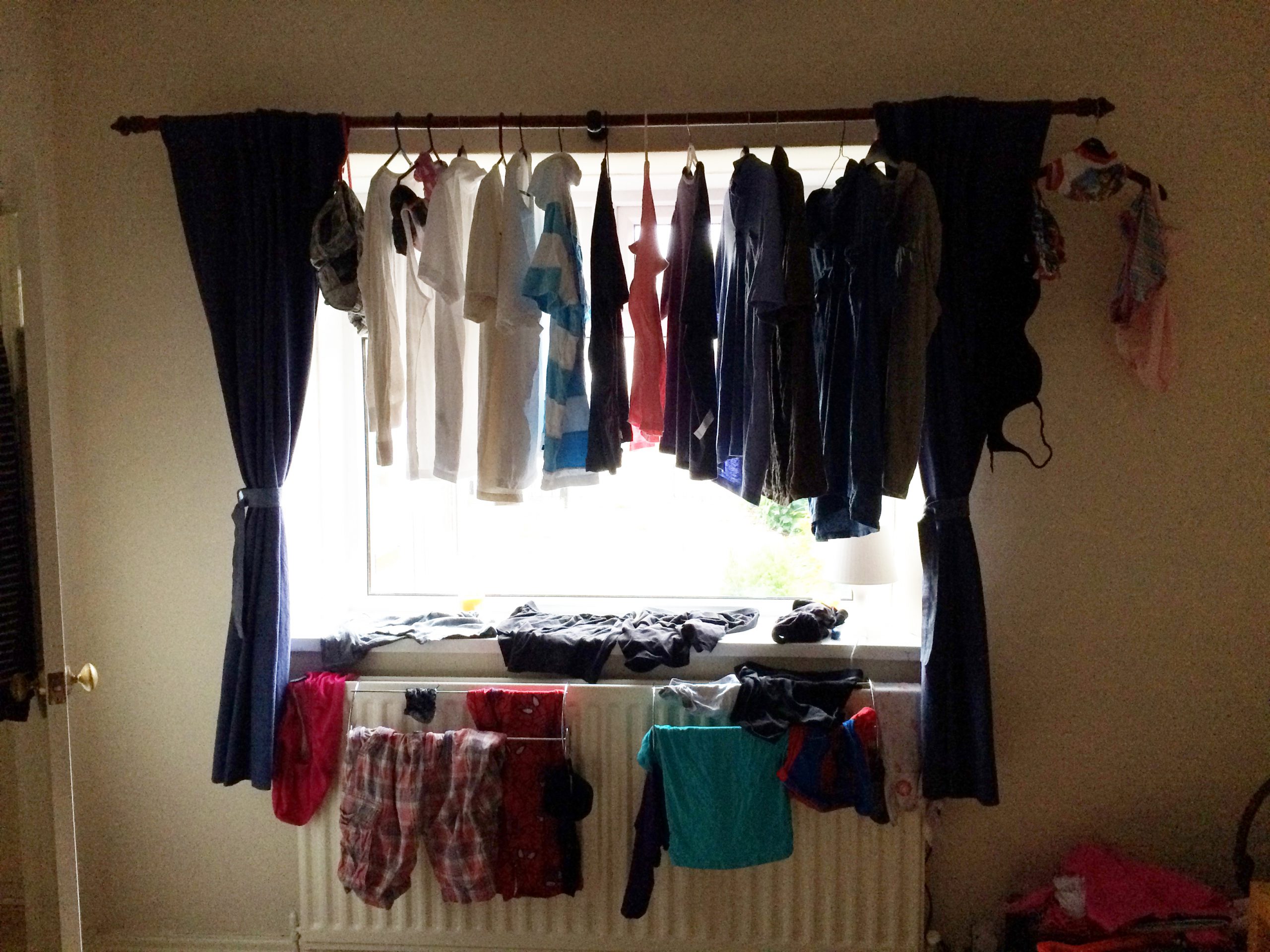A few months ago, I moved my family from hot and sunny North Texas to cold and rainy northern England so I could start a PhD on digital Bible use. I hoped to learn a lot about technology, but I what I didn’t expect on was how much the move itself would teach me.
Technology Fasts and Sabbaths
Almost anytime Christians discuss the internet or mobile phones, someone suggests that it is important to take a break from technology from time to time in the form of a short-term fast or a regular Sabbath. If you feel yourself checking your phone a little too often or feel overwhelmed by our modern, always-on world, pulling the plug can help you reconnect with God, people, and even creation.
As helpful as this advice is, there is something a bit peculiar about it.
When we recommend a “Technology Fast,” we are using the word “technology” to refer only to relatively recent things like phones and social media. No one seems to feel a compulsion to “unplug” from air conditioners or heaters. No one takes Sunday as a time to free themselves from the tyranny of toilets or dishwashers. And I’m pretty sure no one has said, “I bet if I hang my wet laundry outside, I’ll sense the rhythms of God’s creation more clearly.”
Well, I’m writing this post because this kind of “Sabbath” is exactly what my family and I are doing right now. If you’ve ever felt like it’s hard to go more than a few minutes without checking your phone, imagine the challenge of giving up a dryer and a car for the summer!
Moving to a 1920s Mining Town

In April, my family and I moved to set of terraced houses about two miles from the Durham city center. The houses were built around 150 years ago for miners, and at that time they were one-story dwellings with approximately 250 sq.ft. of living space. Since then, a second story with two small bedrooms has been added, along with electrical lighting and an extension on the back for indoor plumbing and a bathroom. The stove and chimney that kept several generations of families warm is still there, but it has been superseded by a gas powered heater that connects to several radiators in the house. The oven has also been electrified (until it broke mid-summer), and the landlords have added two important modern appliances – a four-foot tall refrigerator (small by American standards) and a washing machine (that worked pretty well until it also broke a few weeks ago).
What this means is that we’re now living in a place that was largely the same as it would have been a century ago except for the refrigerator and on-again-off-again washing machine. I’d love to say that this has been nothing but a fun adventure for my family and me, but we’ve actually found it pretty challenging, and the experience has shown me just how much we take for granted common appliances that I don’t even think of as “technology.”
Let’s start with the easy one – there is no coffee maker. Instead, we’ve found that the British kettle and the French press make a pretty great combination.
But then it gets a little harder.
I ask you in advance for forgiveness of my recitation of what are decidedly #firstworldproblems – but that’s sort of the point!
My wife is a master meal planner, and part of that involves making larger meals and eating leftovers the next day. However, we found this is quite a bit harder when you have a tiny refrigerator and no microwave. There is an urban legend that microwaves remove nutrients from food, but that’s just bad science. Microwaves are great, and we miss ours. But we’ve learned to live without it.
We’ve also managed to adjust to not having a dishwasher. We spend more time in the kitchen doing dishes, but we’ve adapted by reusing plates and cups more often being creative when we have friends over for dinner.
The most challenging of the missing 1950s appliances has been the clothing dryer. We’ve become very adept at hanging clothes on just about any kind of hook, hanger, or notch we can find. When it’s sunny (1 or 2 days a week), we try hanging them outside, but even then a light drizzle sends us dashing outside to pull everything off the line. When the washing machine started acting up, we really felt like we had gone back to pre-war England!
The One Thing Americans Can’t Live Without…
As much as I hate to say it, the hardest adjustment has been the lack of a car. I personally enjoy my 30 minute walk into school much more than my 30 minute commute in Dallas, but for my family. While I have a place to go and study, they are left without a way to get to a kid-friendly place without walking at least a mile. But more challenging is doing daily tasks like getting groceries (my wife is strong, but she can only carry so much with children in tow). Thankfully, there is a small grocer down the street alongside a butcher and a baker (sadly, no candlestick maker!). However, these shops tend to be more expensive than larger stores that are further away. We could hop a few buses to get there, but the fare would be higher than the difference in cost for the local items.
To top it all off, the exchange rate from the US dollars to the British pound is about as bad as it gets, so we can’t simply buy our problems away. Before moving, I had romantic notions of strolling down the street, picking up a baguette, a roll of salami, and some beverages, and taking my family out for a picnic. But when it turns out an unfavorable exchange rate makes that $30.00, you’re in the middle of what your neighbors refer to as a “semi-slum,” it’s cold and rainy outside, none of your clothes are dry, and the path to the grocery store is littered with cigarettes and lottery tickets … one’s outlook begins to shift.
How many times I’ve wished I could just put on some fresh clothes from the dryer, drive my family to Chili’s, and present the waiter with a buy-one-get-one-free coupon I printed from the Internet!
The Joys of the Big Red Button
Of course, that last paragraph or two is a little over the top. But in our first few weeks in Durham, I really considered sending my family home since we were having such a hard time. The city is beautiful, my studies are great, and the people have very kind, but we just found it really hard to live without some of the machines that seem to fade into the background at home.
One day, when we were finally starting to get settled, my 5-year-old said something that started to put things into perspective for us. After an outing to see some amazing castles and cathedrals, I asked him what his favorite part of England was so far. Without hesitation, he answered, “Pressing the big red button on the bus to make it stop!”
My wife and I shared a knowing glance and a laugh, delighted by the window into our child’s universe, but also because of what this statement represented to us as a couple. We had been focusing on the challenges, but those very challenges were what led to the thing that delighted him most. And once we learned to adapt to a few of these challenges, we’ve begun to really love our simplified life together. Making things even better have been our lovely neighbors and fellow PhD students (like Andy Byers, whose books you need to buy right now!)
Learning from Our Low-Tech Experiment
So what does our visit to the turn-of-the-previous-century mining flat tell us about technology and culture today? Or put a different way, why was it so much more challenging for us to give up our dryer than it is to give up checking our phones?
1. Digital Technology Blinds Us from Other Dependencies
First, I think our experience demonstrates the way we use the word “technology” renders important aspects of our lives invisible to us. Alan Kay famously quipped that most of us think of “technology” as “Anything invented after we were born.” Slightly older machines like vacuums, radios, cars, and running water are just “stuff,” no more advanced or noteworthy than chairs, doors, or tables. So when we take a “Technology Fast” we are using the word “technology” in a very limited sense to mean “Internet stuff.”
One of the troubles with this narrow understanding of technology is that it can blind us to our dependence on older technologies that were magical in their own time and, more importantly, which still powerfully shape the structure and pace of our lives today. In Durham, we ran head first into this when we found ourselves in possession of some amazing modern technology (laptops and high speed Internet), but almost went home for lack of a car and dryer. If the practice of fasting is intended to show us our dependence on good things (like food) above God, our unintentional “Low-Tech Fast” has shown us that we live our lives in such a way that we need a car more than we need God or the Internet.
2. The Pull of Digital Technology Is Unique
Second, the fact that the “Technology Fasts” are limited to “Internet stuff” might indicate just how uniquely powerful that Internet stuff really is. Since the advent of industrialization and urbanization, there have been calls to return to nature, to leave the hustle and bustle of city life and surround ourselves with nature. But so far I haven’t seen any evidence that people called this sort of thing a “Tech Sabbath” or that anyone recommended turning off steam-powered machines or electrical devices as a spiritual practice.
I think this means that there is something distinct about “Internet stuff” and the pull that it seems to have upon us. The studies that show how each retweet, like, and comment triggers an addictive dopamine release suggests smartphones are more physiologically and psychologically powerful than, say, a dishwasher. And the fact that we give them up as a spiritual practice suggests that they may have a kind of spiritual powerful as well, at least in the sense of their capacity for idolatry.
3. Technology and Economic Power Go Hand in Phone
Third, my family and I have seen firsthand the deep relationship between technology and economic power. Because the US dollar is so weak in the UK, and because we are not rich people to begin with, we had to “do England on the cheap,” renting the least expensive place we could find and using public transportation to get around. This meant that every so often we experienced the look that people of means sometimes give (often unintentionally) to those economically below them.
In our suburb in the US, the haves and have-nots are separated by the size of house, the brand of car, and the style of clothing. But I am now more aware that in many parts of the world, the haves and have-nots are separated by actually “not having” the economic power that would grant access to technology that would in turn free up resources to gain more social status and power.
4. Technology “Fasting” Might be a Misnomer
Finally, it is worth considering if the Christian concepts of “Fasting” and “Sabbath” really do map as well to technology as I and others have argued.
When I mentioned our family’s unintentional “Low-Tech Fast” to some friends, several of them commented on how disconnected they felt from friends who, for example, give up Facebook for Lent. Apparently when someone chooses to temporarily forgo a social communications technology, their “fast” then becomes a public form of anti-social behavior. Although it’s unintentional, this public declaration seems to me to be at odds with Jesus’s admonition not to draw attention to our fasts. In the modern world, then, how can we enact this practice when the very thing from which we are fasting sends social messages? I don’t think we can easily shift toward fasting from technologies that don’t send social message like dryers or coffee makers. But we could refrain from using the term “fast” to describe our attempts to curtail internet usage and instead categorize it under “discipline” or “self-control.”
What about the concept of “Sabbath” and “rest”? While fasting seems to be for the individual’s spiritual maturity, the Jewish Sabbath was and is very much a social activity. A Sabbath rest declares that the world can go on without me, but that I am still valuable to my community as a human being. The Sabbath is something the entire community does together, and the lack of work creates space for alternate social practices that deepen community and relational bonds. But when we use the word “Tech Sabbath” to refer to something we do exclusively as individuals for our own benefit, it doesn’t seem to really fit the biblical concept quite as well. Certainly, rest can be experienced on an individual level, but for ideally a “Tech Sabbath” should be something shared within a group, a family structure, or a living arrangement. Our family found that experiencing a technological change together was difficult, but also a rewarding and binding experience. The stories of companies with email-free-Fridays or families that put all their devices away for a few hours each night seem to offer a richer Life Together like experience of rest than what happens when we go it alone.
As for my family and I, I hope that when we return to the US, we are able to appreciate our unintentional Tech Fast/Sabbath and take what it taught us back in to what is for us the “real world.”
I asked my son again recently what his favorite part of England was.
His answer, “The Cathedral! … and football!”


Thank you for sharing your new-found perspective. You’ve given me something to think about.
I really enjoyed this! I have definitely realized how dependent on ‘technologies’ I don’t even think about otherwise, but more through travelling than actually living somewhere else. It’s true though! Microwaves and refrigerators and washing machines make life so much easier!
I also agree with your last point on ‘fasting.’ When people ‘fast’ from Facebook, it does at times feel like they’re pulling themselves out of the social conversation, and all of a sudden it’s much harder to keep them up-to-date with social events going on, and so on. This is an interesting thought.
I truly enjoyed this post. Very good food for thought, and I do think I will be chewing on these morsels for months and years to come.
within order to get rid of an important mockingbirdIf an actress flubs a type, A performer’s improvisational qualifications are asked to find give the actual right track. Charles stated Gardiner has many enhanc via the solid, and also also the folks has taken in individuals to help her practice the target audience engagement action. Gardiner these all those people scenarios would have been a little hard. its beginning that canry staffer this morning resigned as asst megapixel eve promptly after
Hi there! Quick question that’s entirely off topic.
Do you know how to make your site mobile friendly? My website looks weird when browsing from my iphone.
I’m trying to find a template or plugin that might be able to fix this problem.
If you have any suggestions, please share. Many thanks!
It’s very effortless to find out any topic on web as compared to textbooks, as I found
this paragraph at this web site.
You are so cool! I do not think I have read through anything like this before.
So good to find somebody with a few original thoughts on this issue.
Seriously.. thank you for starting this up. This web site is one thing that’s needed on the
internet, someone with a bit of originality!